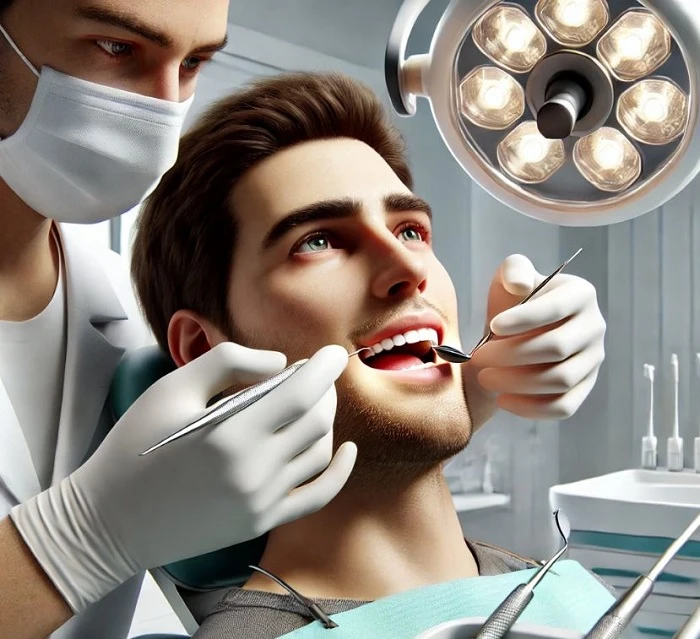We use cookies on our website. By continuing to use this site, you agree to our use of cookies. Learn more in our Privacy Policy.


The operation to remove a tooth should not carry the slightest harm to health or risk to life. On the contrary, it is carried out to make life easier for the patient.
Tooth extraction is a low-traumatic surgical intervention, which often increases quickly (10-30 minutes) and painlessly (with the use of anesthetics).
Still, this is a last resort, so a highly qualified dentist will do everything possible to save the tooth if there is a guarantee that it will last for years to come.
There are several indications and contraindications of tooth extraction.
• Crown or root fracture
• Almost no chipped crown
• Cyst and other inflammatory processes, almost unaffected
• Bone tissue is resorbed between the roots of the tooth
• The tooth broke in the rock, the foundation broke
• Mobility of teeth III degree and above
• The inflammatory process in the bone tissue progresses
• Tooth of the correct formation of the correct bite
• Advanced stage of caries
• Obstruction of the dental canal
• The tooth constantly injures the tongue or cheek
• Problematic wisdom tooth eruption (at an angle)
Note that in the treatment of malocclusion, it is recommended to always remove molars (“wisdom teeth”, “eights”).
Possible situations when it is impossible to remove a tooth categorically. The dentist will not undertake the extraction of a tooth if the patient is diagnosed with:
• blood diseases;
• hereditary disorders;
• pregnancy (beginning and last trimester);
• progressive infectious diseases;
Also, you cannot remove teeth if there were cases of heart attack, stroke, and serious conditions less than 6 months ago.
Before removing a tooth, it is necessary to have an x-ray examination.
Whether it is necessary to take an x-ray of the root after tooth extraction, the dentist decides.
If the operation was standard and the dentist is confident of success, there is no need for an x-ray.
If the case is complex and there is doubt that all parts of the root have been removed, the patient is asked to do it.
It is often necessary to take an x-ray after the removal of multi-rooted molars and impacted wisdom teeth.
Dentistry - current articles and advice to patients. Dental implantation, prosthetics, surgery, hygiene and much more.
See All


We will send referral for an X-ray on your Email
(check your spam mail)

Congratulations! Data sent. Expect price offers by email.
Do you need a
REFERRAL FOR AN X-RAY?Are you looking for
USEFUL ARTICLES?Do you want to
CALCULATE THE PRICE OF YOUR DENTAL TREATMENT?Are you looking for
DENTISTS NEARBY?